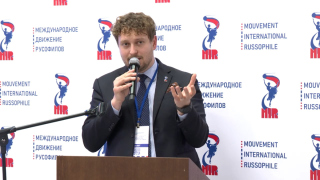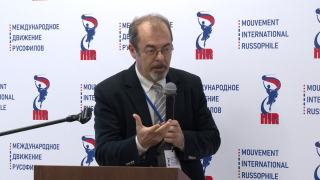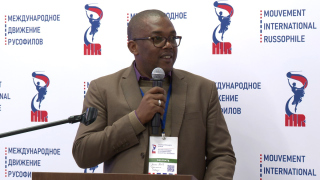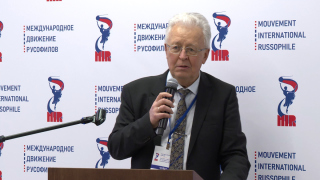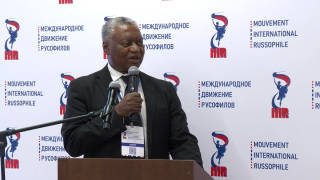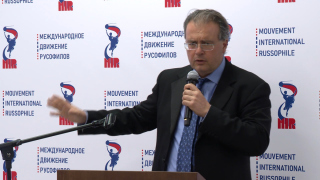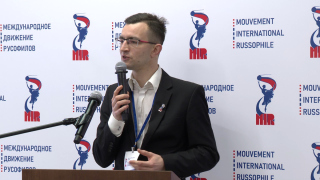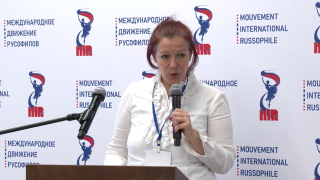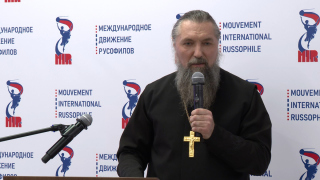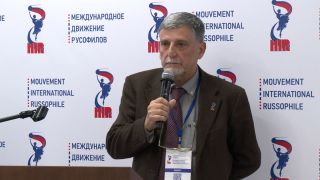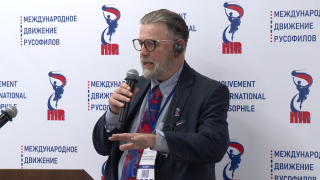The Multipolar Mediterranean: The challenge of a better future and a Pax Mediterranea
The old heart of the world
In the wide-ranging and detailed international reflection on geopolitics, there is a tendency to reflect on the major intercontinental systems, concentrating mostly on the two macropowers that the 20th century has consecrated, namely the United States of America and the Russian Federation, taking them as references in an almost univocal manner; when new major powers present themselves, as has been the case since the beginning of our century, there is an attempt to make a comparison with the two majority powers and study the relations and ties that exist with them. This manifests, in my opinion, a kind of formal flaw that is entirely legitimate but at the same time necessary for revision.
Geopolitics, in fact, has since its foundation given a privileged space to geography, which is one of its constituent sciences, putting history in second place, a positioning more related to functionality than disciplinary importance. Without therefore discriminating clumsily, it has created a sort of bubble of the eternal present (or eternal future) in which many geopolitical analyses take place, omitting the past and the historiographical construction of geopolitical events, the understanding of which is indispensable not only to understand the present, but above all to suggest a direction for the future.
Let us think of the Mediterranean. It is the heart of the so-called 'Old World', an acronym that comes from the ideology of American Occidentalism, which has permeated Europe for decades, for which severing the links that have bound European peoples with their geographical and geological context was a primary duty. The physiognomy of Europe underwent a major reshaping in the space of a century, decentralising from the Mediterranean, which had been the cradle of civilisation models and great empires, to move between London and Brussels, much further north than the historicity of the facts. A variation not only geographical, but existential and, therefore, noologically speaking, capable of irreversibly changing the manifestation of the spirit of the peoples inhabiting the continent.
If Halford Mackinder had been born two or three centuries earlier, he would probably have uttered different words about the Heartland, which we could borrow as follows: 'He who controls the Mediterranean, controls the world'. The Mediterranean, then, is not the 'heartland of the Old World' but the 'old heartland of the world', because until the misalignment of power structures towards the Atlantic, the Mediterranean was the nerve centre and the object of lust and conquest. Taking a quick look at European history, this seems to have been the leitmotif for centuries, from the ancient Greeks until at least the Great War. Controlling the Mediterranean, defined as a closed sea and, for that reason, extremely prolific, rich and strategically advantageous, meant having control over the entire world at the time. Because for all intents and purposes, the Mediterranean is not simply the southern part of the continent of Europe, with the Italian geographical extension and its islands; it is not even just a bit of water enclosed between wonderful fertile coastlines; it is, first and foremost, dominion.
The Mediterranean has always been a great open space where many different entities have converged, whose destinies have intertwined since the remotest epochs, weaving flows with dense relational plots that have generated a wealth of identities, cultures, arts and techniques that still today make any other people pale in comparison. A reconsideration of its importance, without for that reason wanting to subvert the 'classical' canons of geopolitics as a science, can however give a boost to reflections and analyses with a different character from the usual western-centrism of contemporary political science.
The Sea is Multipolar
The sea has a very powerful multipolar afflatus. The Mediterranean is, as already mentioned, multipolar by its very constitution, because it has continuously experienced the control and encounter-clash of a myriad of territorial cells, ethnic groups, languages, religions, economies distributed around the edges of the maritime universe. It is the mare nostrum that we have written in our blood, it is the place of competition between regional and global powers. The sea laps and allows us to reach several poles of the geopolitical chessboard, constituting the favourite space for large-scale movements; it also covers most of the entire globe, and stores within it the main resources that drive the international economy.
Let us look at history again: the Roman Empire is generically considered a tellurocratic power. Rome, however, expanded not only thanks to the legions that travelled across the vast central European highlands, reaching as far as the borders of the great mountains in the east, but also and from the very beginning towards the mainland by crossing the great sea. The multiethnic and multicultural richness of the conquests of what became the Empire took place precisely because of the sea. A coincidence of strategic and doctrinal domains that is probably unique on the entire planet. Such greatness was also economic precisely because of the sea, which made it possible to trade with the East and with the South from the very beginning, tracing a dense network of trade routes on water and on land, so well constructed that they still function well today.
In the Mediterranean basin, Italy[1] is (or, rather, should be) by its very nature the holder of strategic leadership, a prominence that has been decisively thwarted over the last eighty years. This natural projection has been at the heart of our foreign policy since before Italy was a unitary state. The European Union and NATO[2] are well aware of this strategic location, so much so that both soft power policies and the positioning of international alliances[3][4][5] are focused on the Mediterranean peoples.
The very concept of the Enlarged Mediterranean, considering the sea as a complex multidimensional domain capable of incorporating continental Europe, the Middle East, and the northern and sub-Saharan belts of the African continent, as well as connecting with the Far East and, of course, opening westwards towards the Ocean, is an ideal and strategic continuation of the mare nostrum of Roman memory[6].
Carthage misaligned, Rome occupied and History reversed
One can understand why the strategic interests of the Anglo-American pole, constituting the thalassocracy par excellence, were to subjugate the Mediterranean with its peoples. A certain level of control, both direct and indirect, would have guaranteed the exploitation of that sea in a manner functional to hegemonic expansionism, but also the possibility of keeping the growth and recovery of European nation-states limited and within manageable limits following the First and Second World Wars. Subjugating the governments bordering the Mediterranean guarantees control over the Mediterranean, and this has been done militarily, financially and politically over a little over a century of international relations, armed conflicts and economic crises, but always with a precise and coherent plot.
Carthage, Rome's arch-enemy, is now misaligned and decentralised, no longer geographically where it used to be, but is located between London and Washington, and from there it has successfully operated its plan to re-appropriate the sea it once ruled. The Pillars of Hercules have been overcome, they are no longer a fearsome natural and metaphysical boundary of the Mediterranean peoples' livelihood. History is, in a sense, reversed because Rome no longer has power and is subservient to the heirs of Carthage, to the point of suggesting the non-existence of a Mediterranean civilisation, which is possible by admitting the continuation of a non-multipolar, but unipolar world, with Atlantic hegemony. Rome is, in a sense, occupied by the emissaries of Carthage.
The Mediterranean powers[7] have within themselves an enormous potential for revenge against the Anglo-American pole; a potential that, however, is at least hypothetically unable to cope on its own with the proportions of a world thalassocratic conflict, where by conjunction of elements the Anglo-American pole is in any case larger, stronger and more organised. Strategically, the eventuality of a conflict to regain independence would mean an effort so great as to risk annihilation; similarly, economically, this would entail a sufficiently strong autonomy to disengage the Mediterranean from all international economic and political partnerships and dependencies.
However, the dislocation of Carthage is not the dislocation of the Mediterranean and its peoples, which means that there is still a viable potential for reconquest.
A Mediterranean Partnership
At the end of this discussion, hoping for the reaffirmation in a multipolar key of the Mediterranean with its peoples, it is interesting to launch a projection on a possible Mediterranean partnership, composed of the countries that are bathed by it and that have sufficient strategic, geopolitical and geo-economic interest in reaffirming the macro-regional autonomy and the rebalancing between the dominion of Land and Sea, the fulcrum of Europe's historical greatness.
Such a partnership is factually already possible and to some extent NATO's administrative and strategic decentralisation, some might argue, already represents such an alliance. In truth, it is precisely with a view to decoupling from Atlantic dependence, and only on this route, that an integral Mediterranean autonomy will be possible. Again from a multipolar perspective, the Mediterranean partnership would allow the reconstitution of old treaties and alliances that would allow the states of the basin to consolidate as a nerve centre between Europe, Eurasia, Asia, the Middle East, and Africa, with the possibility of consolidating a strategic bloc so strong that it would leave the American continent in the background compared to the hyper-region 'to the east'.
Such an international agreement would reopen the door to an enormous strengthening of alliances in a European key - and not necessarily according to the model of the European Union -, both economically and strategically, strengthening the continental bloc and making it a non-abdicable reference point for the routes and borders of the 'old world', as, moreover, it has been over the centuries of the presence of the European empires. It is difficult today to think of a Mediterranean-centric Europe, and not an Atlantic-centric one, because once domestic and international independence was lost, the bonds established caused such a strong subjugation that the very existence of political institutions depended on it. It is difficult, still, to think of European countries, primarily Italy, as economic powers that can dictate the course of the markets, and not be subjected to them.
It is precisely this prospect of prosperity (pun intended) that the United States does not want, but which Europeans, the Mediterraneans, are called upon to regain.
Now, for the realisation of any partnership or alliance, certain objective conditions are necessary, the most important of which is peace. Pax, in Latin, is not the simple absence of war, but rather the adoption of a modus vivendi, imposed by a competing power or established by agreement between the parties. A Pax Mediterranea would be a peace of the Mediterranean peoples, of the European peoples, a harmonisation of the civilisation models traditionally found in that geographical macro-area; a peace between the North of Africa, between the Crescent of the Middle East, between Southern Europe, between the peoples of the Balkans; a peace that opens up to the Atlantic Ocean but does not allow itself to be influenced by its power, because the Pillars of Hercules remain firmly in defence of the Mediterranean; a peace that is geo-economically convenient, insofar as it attracts investment and guarantees flows; a peace, finally, capable of stabilising the plane of international relations on a genuinely multipolar shared identity.
Notes:
[1] It would be necessary to clarify, but this is not the place, whether Italy is a power 'more' of Sea or Land, where in the course of history, even simply that of the unitary state, it has varied its strategic predominance several times.
[2] The Mediterranean constitutes the 'southern flank' of the Atlantic Alliance, a definition that already renders the idea of geopolitical subjugation. Partner countries perform a dual function: cooperative, i.e. of interaction and military diplomacy towards partner countries in the region, also within the framework of multilateral initiatives; operational, of presence and deterrence.
[3] The experience of Greece's bankruptcy, a tragic episode in contemporary history, is a possible example of what happens to countries that do not align themselves with Brussels' and Washington's decision to remain subservient to an overseas power.
[4] Italy, being at the centre of the Mediterranean, also receives almost all migratory flows, fuelled by a series of concauses, a situation that influences relations between Allies and European Member States.
[5] One should not omit the context of hybrid wars within which the grey zone makes the blurring between Defence and Security and between domestic and international conflicts increasingly blurred.
[6] As a whole, the Wider Mediterranean represents an area characterised by instability, uncertainty and an articulated dynamism stemming from the conflict in Libya, the border tensions between Morocco and Algeria, the Tunisian political crisis, and the unresolved question of the territorial sovereignty of Western Sahara. Added to this is the highly degraded security picture of the Sahel, pervaded by the distributed presence of DAESH, the insecurity of the Gulf of Guinea, defined by the IMB (International Maritime Bureau) as a world piracy hot-spot, and the Horn of Africa. The Yemeni instability, its repercussions on Bab El Mandeb and the crisis in Ethiopia linked to the Tigray region on the border with Eritrea remain. Without forgetting, in the areas outside the 'triangle', the continuing fragility of the Balkan area and Lebanon, the Syrian crisis, the energy and territorial competitions in the Eastern Mediterranean, the recrudescence of the Ukrainian crisis and that on the Turkish-Syrian border, up to the Iraqi instability and the rise of tension in the Persian Gulf area, with repeated attacks on merchant ships and, more recently, on coastal countries.
[7] Assuming one can speak of powers.



